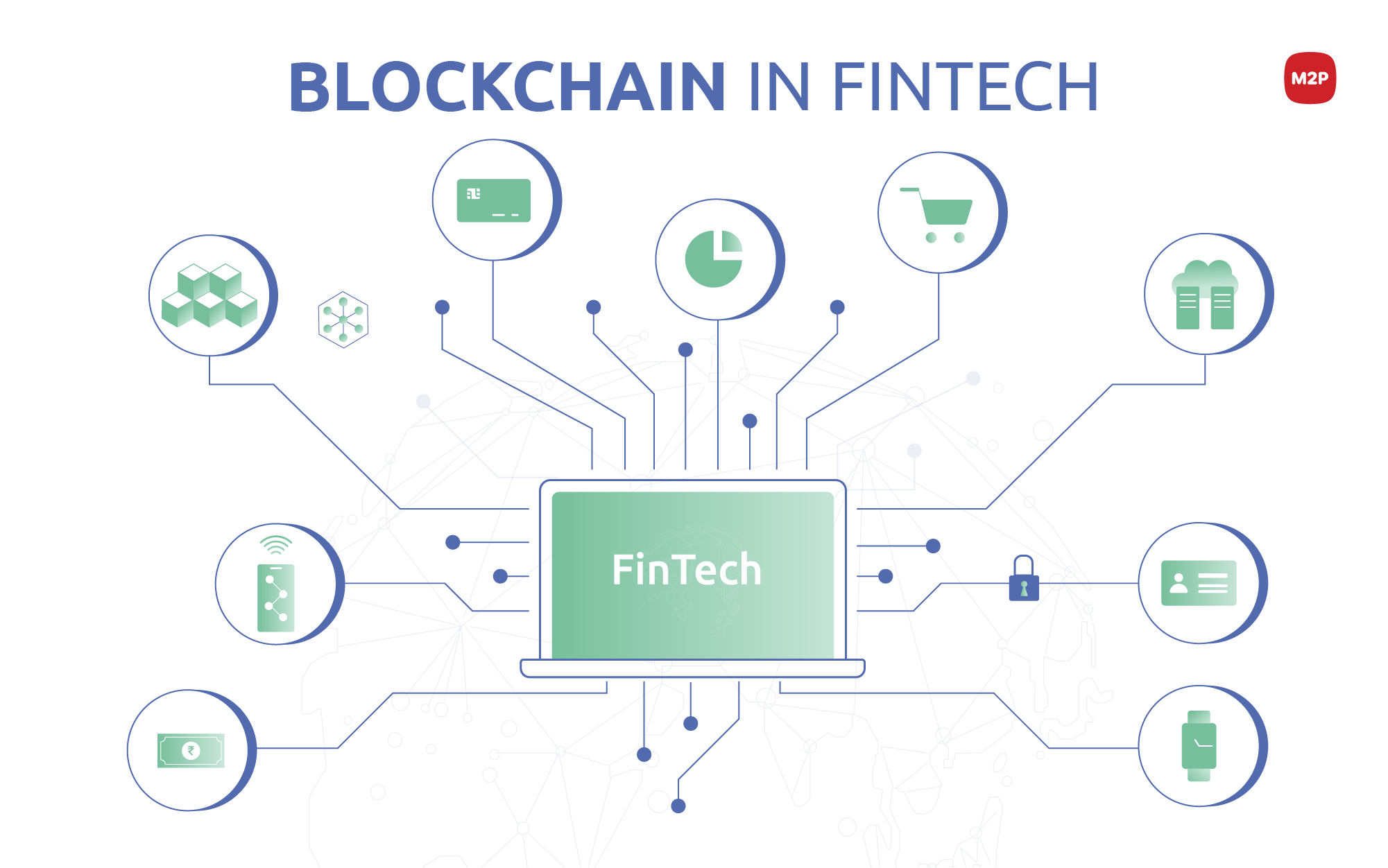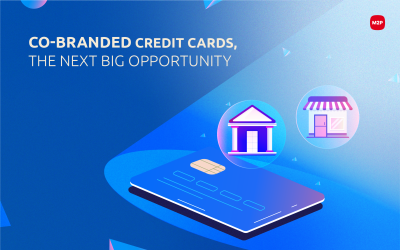
Blockchain is crossing its chasm and it might be stumbling its way towards knocking on the doors of many other industries. Still, the scope of its application and ideas challenges the present technologies in the field. This technology, still young and fresh, continually offers its beneficiaries data transparency, security, and quicker transactions.
Awaiting to join hands with fintech APIs blockchain promises, to accelerate numerous applications to the front row. Unfortunately, the innovators and investors are not on the same page yet on bringing the dreams of fintech operations into practice.
Still, one cannot overlook the potential of blockchain technology because bitcoin efficacy is proved through the decentralized protocol algorithm of Blockchain.
The use cases of Blockchain in Fintech are discussed below along with the deterrents of the operational practices too.
What is Blockchain?
Blockchain is a database: digital, decentralized database. A series of blocks containing transaction data, a hash identity, and node details are connected to form a chain. They are linked to their previous block with immutable characteristics. It also facilitates the process of recording, managing, and tracking assets. Assets can be tangible and intangible, and virtually anything of value can be traded on a blockchain network. It reduces risk and costs for all the parties involved.
The reason why Blockchain is now on an accelerated trend is that it is fast. As a business runs on information, the quicker it is received. The more accurate the information is, the faster the business reaps results. The security aspect of Blockchain is well coveted as it can be accessed by individuals who have the key. It offers a single view where even a single modification will be known to all the members.
How does Blockchain work?
Blockchain records validate and store the data in its database. So, it has the privilege to validate a transaction. However, it does not simply hold the data but also every nuance that happened in the transaction.
- User requests for a transaction of any type involved with or without contracts, cryptocurrency, information, or any other records.
- Now the requested information is sent to various nodes of the P2P network (the people involved in the transaction) for validation.
- The validation of the nodes and the user status is recorded and updated by the algorithms.
- Once the transaction is complete, a new block is added with the recorded data to the previous block .
Each block contains the following information
- A Hash pointer (link to the previous block)
- A timestamp
- Transaction data

What gives Blockchain its power?
Blockchain destroys cybercrime attacks with its decentralized ledger. The conventional centralized ledger in Fintech opens pathways to fraudulent activities despite its easy access — vulnerable to cybercrimes. In the case of the Blockchain, the distributed P2P network allows more than one node (device) to validate, authenticate and approve transactions.
Moreover, the nodes cannot alter any transaction data without their peer nodes.
A decentralized ledger is the core concept of Blockchain technology that makes it completely superior. This operational protocol helps holds numerous features such as embezzlement in check.
Blockchain characteristics are flexible enough to bend at few places and remain immutable at other occurrences. Moreover, it comes with complete security compliance, avoids fraud, and is scalable with any form of transaction.
Reliability: It removes the double records because it certifies and identifies the transaction of each party.
Unchangeable transactions: You cannot edit or remove the transactions but only add. The chronological ordering stores each block with a timestamp.
Reduces Frauds: The P2P network validates the transaction request and reduces the chance of embezzlement.
Collaboration: Removes the third party from the transaction. The dream of digital banks, neo banks complying with all the strict regulations is possible with blockchain technology.
Transparency: Transaction details are public to everyone, including changes (parties involved in the transaction). It solves the credibility and trust challenges of Fintech.
How Blockchain is transforming Fintech?
Blockchain is silently proving its invincibility in the fintech industry. However, underpinning Blockchain is to the transformative growth of Fintech; it is abstained by a large crowd due to operational reality.
Ripple connect and Ethereum has found their ways into early adopters door but could not cross the chasm cycle yet. Effectively, the technology contributes to reliable finance systems through robust algorithms: distributed technology in record keeping and transactions with the decentralized protocol eliminating thousands of paperwork.
The infant technology is fruitful for Fintech, especially in shaping retail banking services.
- RTP solutions: Sending money will only take a matter of minutes. Implementing RTP has been risky with the traditional banking process, but Blockchain accelerates the implementation process. As a result, irrespective of any app used for money transfer, transactions will happen securely.
- Cross-border Payments: While setting up to collect or fund transfer across other countries, the limitations make the process slow, tiresome and challenging. With Blockchain, the restrictions can be melted. In addition, it is an entirely internet-based operation which removes the need for an additional setup cost.
- Smart Contracts & Recurring Payments: For SaaS & B2B industries, smart contracts will help secure credible transactions that can be released based on a completed action, event, or conditions. It is useful when the goods are delivered, and the funds are released in the logistics.
Blockchain use case scenario in RTP solutions & cross-border payments
From 2017, there are speculations of the use of Blockchain in the fintech field, as of now, no direct confirmation apart from Ripple and Ethereum using their Blockchain in real-time settlements and cross-border payments — a real challenge in retail banking.
RTP & international payment processing solutions are slow because of the conjecture of the third parties in stock markets, healthcare, and cryptocurrency. However, blockchain usage can lift the barrier in a few cases if the compliance has been favorable. Thus, it may not remove the third party entirely but speed up the process.
In cross-border and RTP solutions, the payment systems still need a third party till the regulations are changed. But with cryptocurrency, the need for the traditional infrastructure banking setup can be overridden. First, the currency of the payer can be converted to bitcoin or any other fiat currencies. Then the payment can be approved by the distributed electronic ledger protocol.
Then the receiver will get the settlement in the original currency. It involves an additional step of converting the currency to crypto and then back to the original format. Of course, it increases a few complications. Still, given the present tech innovations in the market, this is an easy pie.
A group of consortium banks in Japan is currently running on this tech innovation method to collect international and RTP domestic payments.
Fintech Blockchain Use cases
Smart contracts
An exciting branch of Blockchain is the smart contract. The capability of smart contracts is transformative enough to disrupt the automation process in the future. Adding a bit of AI or edge intelligence, smart contracts will be more intelligent: they can trigger AI decisions.
In 2016, financial consortium R3 and its member banks completed trade finance prototypes that used smart contracts to process factoring transactions and letters of credit. Smart contracts have high leverage on places where escrow is high. When a synchronized chain of actions happens upon if/ else statements drawn by both parties, it is a win-win situation.
KYC
Know Your Customer (KYC) is a regulation now, and it is mandatory for consumers to enjoy frictionless payment advancements. But overcoming KYC challenges, and establishing the identity of the customer without barging into their privacy is complex. The transparency of Blockchain enables identity verification without disclosing the true identity. It sounds like beating around the bush, but the protocol allows to establish, verify and transact based on digital identities of all the counterfeits.
Escrow — freelance
Freelance opportunities are booming everywhere, thanks to COVID; however, the escrow is high. For a platform like Upwork, satisfying both sides is a requirement without any compromise. The best way to solve these problems is through smart contracts. Transferring the deliverables based on effective agreed rules from both parties can enable a seamless functioning of the whole platform.
Recurring Payments
In B2B, the payments usually take 3–4 days to complete, which is quite annoying nowadays. The middlemen in the process are co-dependent with the paperwork, which delays the sales cycle even further. Intelligent contracts can plunge in with the idea of its transparent agreement terms, making recurring payments every month or year easy. The contract triggers the next step of the action only if both the parties are convinced, so it gives complete control to the buyer and the seller
Blockchain is waiting for its massive scaling, and 2021 is the year for its spark plug. The industry is quite busy solving its problems with operational constraints. Yet, we have pretty a trend waiting to breach in soon, at least into the payment ecosystems under the fintech radar.
To know more about blockchain, write to us at business@m2pfintech.com.
Subscribe to our newsletter and get the latest fintech news, views, and insights, directly to your inbox.
Follow us on LinkedIn and Twitter for insightful fintech tales curated for curious minds like you.




0 Comments
Trackbacks/Pingbacks